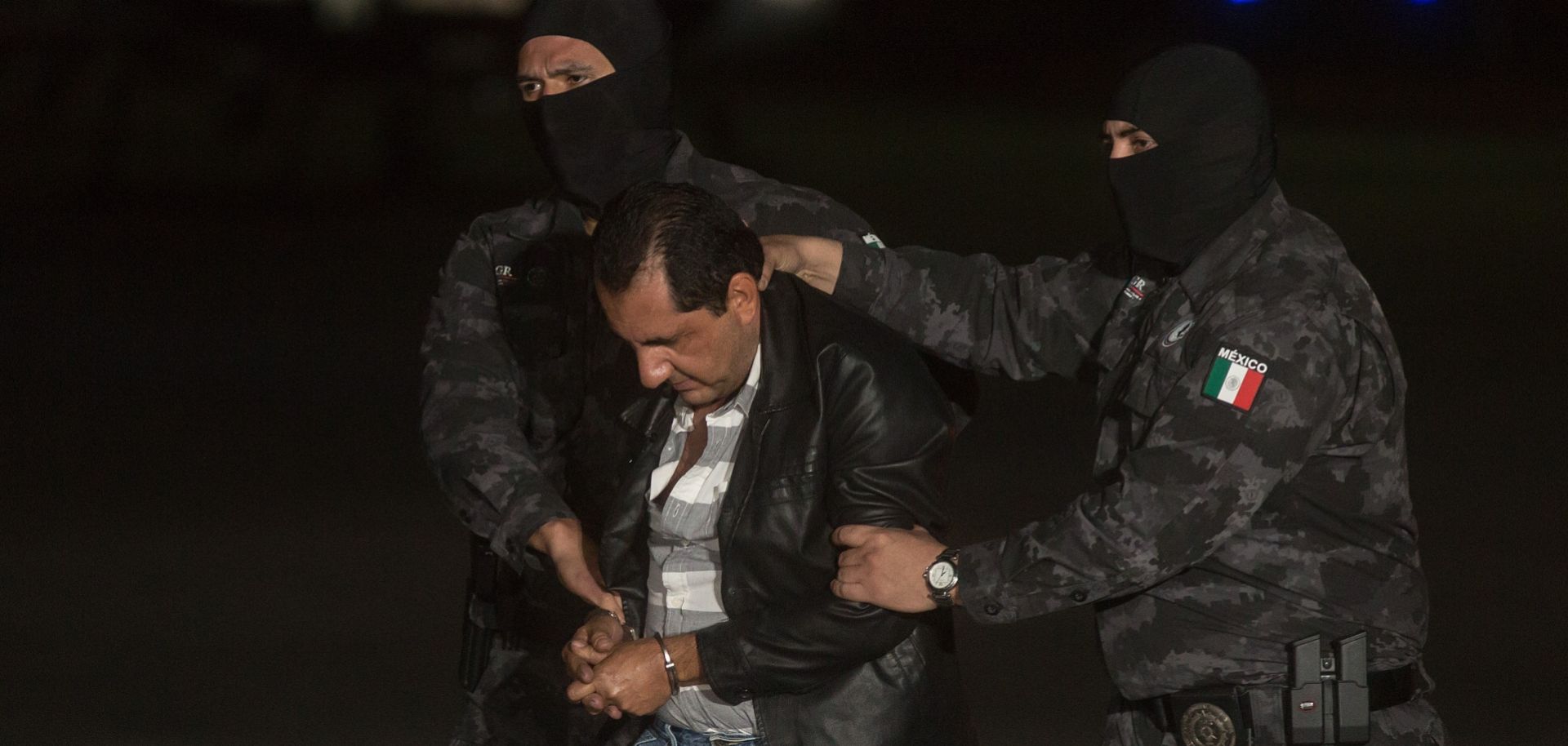COLUMNS
The Case for a Counterinsurgency Approach to Mexico's Cartel Wars

Oct 1, 2019 | 10:00 GMT

Favio Gomez, brother of Servando Gomez, also known as "La Tuta," is transported in Mexico City on Feb. 27, 2015, after his capture. Counterinsurgency tactics, rather than counterterrorism measures, might bring Mexico more success in battling its cartels.
(MANUEL VELASQUEZ/Anadolu Agency/Getty Images)
Highlights
- Mexico has not designated its cartels as terrorist organizations, but it uses many counterterrorism tools and tactics to fight them.
- Such an approach has weakened many cartels, causing several to implode, but it has done little to enhance the government's legitimacy or address the issues that foster the rise of such groups.
- Because cartels have grown strong due to corruption, incompetent governance, economic malaise, impunity and the absence of the rule of law, Mexico might require a holistic counterinsurgency approach that goes beyond military means to remedy the underlying issues that facilitate such criminality.
Subscribe Now
SubscribeAlready have an account?
